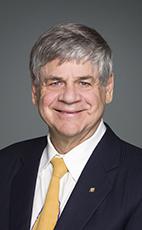Mr. Speaker, I do not know where to start as there were a lot of areas. The first thing I mentioned this morning in my opening remarks was that if there was any opposition, I was hoping to get it in on the record today so we could debate it.
As the member mentioned and as I mentioned earlier, as we have moved along there has been more and more agreement. As people begin to understand the various clauses, which makes the agreement more binding, and their benefits, they come on side.
The concerns people had about meetings and having their say, this particular agreement with this 99 page constitution, as was mention by another member this morning who went into all the details about transparency and accountability, gives much more accountability, transparency and assurance that the people living on reserve will have their say and that things will go in an orderly fashion, not that I have heard any complaints to date anyway, but they will be even more regulated in that respect because of a constitution that is excessively detailed.
With regard to the many legal challenges, perhaps the member could outline what might be a legal challenge, because of course there have been all sorts of lawyers working on this. I believe there are 17 self-government agreements in the country already. Some of them are constitutionally protected and there have been no challenges to those. I do not think it will take years of wrangling if the only question is on health care, because that could be answered in five minutes by a lawyer. Health care is not one of the powers in this agreement, although it is in other land claim self-government agreements.
This may perhaps get the member more worried but section 222 contains a list of items that we may look for in future negotiations and the powers in which they could become involved. One of those is section 8, which mentions health, in addition to what is provided for in respect of traditional aboriginal medicine in this agreement.
Why would people be opposed to giving a certain group of people, whoever they are, the ability to regulate their own language, culture and all these things in their area when the majority of the surrounding governments agree, the municipalities, the province of British Columbia and all the adjacent people?
The member is correct, and I said it earlier, there are people who disagree, both on and off the reserve, but it is certainly not anywhere near a majority. Perhaps he could follow up on some of those areas.

